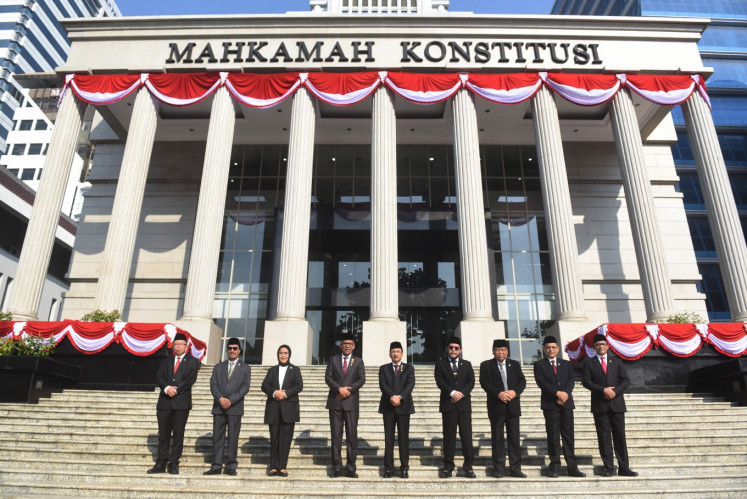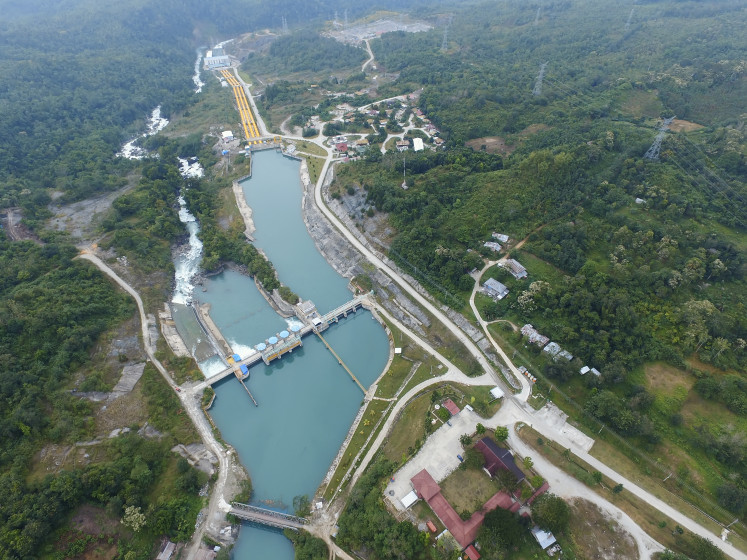Popular Reads
Top Results
Can't find what you're looking for?
View all search resultsPopular Reads
Top Results
Can't find what you're looking for?
View all search resultsCrystal meth now cheaper, ‘stronger’ in RI: UN report
As illegal drug producers in the lower Mekong region in Southeast Asia continue to consolidate their operations, Indonesia has seen a decline in the price of synthetic drugs like methamphetamine, a new United Nations report has revealed
Change text size
Gift Premium Articles
to Anyone

As illegal drug producers in the lower Mekong region in Southeast Asia continue to consolidate their operations, Indonesia has seen a decline in the price of synthetic drugs like methamphetamine, a new United Nations report has revealed.
According to a report from the UN Office on Drugs and Crime (UNODC), the surging supply of synthetic drugs has pushed down prices to their lowest in a decade.
The report found that the regional supply of methamphetamine has steadily increased as drug operations in the infamous Golden Triangle region of the lower Mekong have become more efficient, making it more affordable for drug users.
The Golden Triangle is the area where the borders of Myanmar, Laos and Thailand meet at the confluence of the Ruak and Mekong rivers. Along with the Golden Crescent in Afghanistan, the Golden Triangle has been one of the largest illicit drug-producing areas in the world.
In Indonesia, the amount of crystalline methamphetamine seized annually has increased significantly in recent years, with the record amount of 17.9 tons seized last year, exceeding the combined amount recorded over the two previous years.
“It is hard to imagine that organized crime has again managed to expand the drug market, but they have,” UNODC representative for Southeast Asia and the Pacific Jeremy Douglas said. “While the world has shifted its attention to the COVID-19 pandemic, all indications are that production and trafficking of synthetic drugs and chemicals continue at record levels in the region.”
Despite significant drug busts, the typical price range for 1 gram of crystal meth in the country has nearly halved over the last four years to $86.7 to $114.3 in 2019.
This indicates that the drug busts have had little impact on the availability of the drug in the market, the report stated.
“Organized crime groups are in a position to provide better quality methamphetamine at much cheaper prices compared to a decade ago, increasing affordability and harm at the same time,” UNODC illicit drugs analyst Inshik Sim said.
According to the UNODC’s assessment, the methamphetamine market in East and Southeast Asia and neighboring countries is valued at around $61.4 billion.
The drop in drug prices has put a number of countries on high alert in a region that is split between a harsh antinarcotics stance and a more lenient approach backed by historical and traditional customs.
But the COVID-19 outbreak has provided countries with an extra buffer to anticipate illegal drug flows.
In Indonesia, tighter border controls imposed to prevent the spread of COVID-19 have unwittingly resulted in a reduction of illegal drug supplies, said Insp. Gen. Arman Depari, the National Narcotics Agency’s (BNN) eradication deputy head.
“But that doesn’t mean they have disappeared altogether; they just haven’t been very active. Their finished products are still ready to be sent to any country that demands it,” he told the press in a virtual briefing on Thursday.
The sea route to Indonesia, with the porousness of borders off the coast of Sumatra, is considered to be a preferred route for traffickers, he noted.
Meanwhile, drug syndicates in Myanmar, Laos and Thailand have partnered up with groups in Indonesia, China, Taiwan and other countries to ramp up production.
BNN head Comr. Gen. Heru Winarko said his agency had stepped up international cooperation to intercept drug traffickers from entering the country by sea.
BNN is the leading agency in the ASEAN Seaport Interdiction Task Force (ASIFT), where member countries share information regarding the potential for drug trafficking via sea transportation.
“We have established seven interdiction posts […] in vulnerable places in North Sumatra, Batam, Kalimantan, Bali, Banten and Jakarta to communicate with neighboring countries, so they don’t miss out on information,” BNN’s Arman said.









